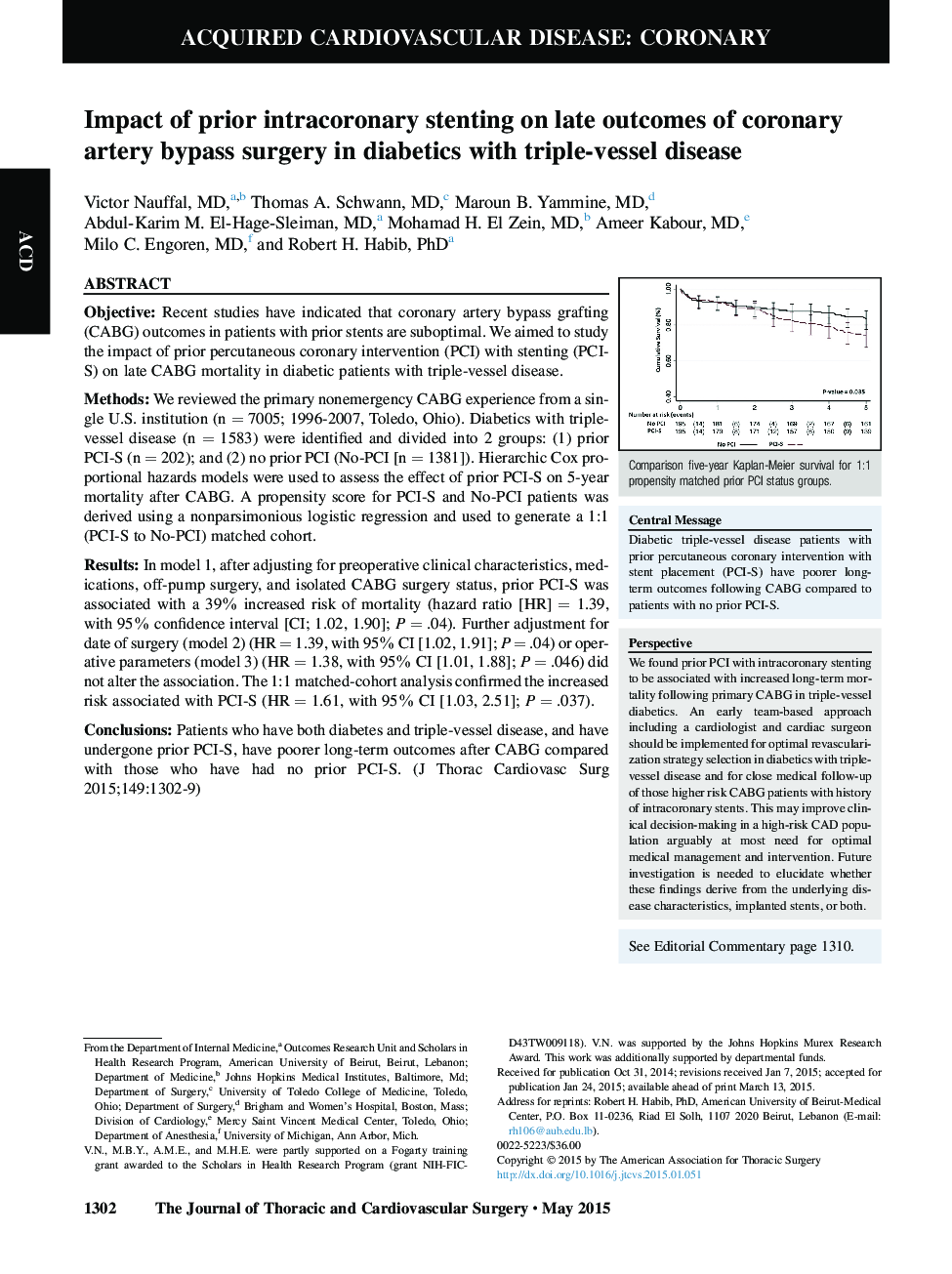| Article ID | Journal | Published Year | Pages | File Type |
|---|---|---|---|---|
| 2979563 | The Journal of Thoracic and Cardiovascular Surgery | 2015 | 8 Pages |
ObjectiveRecent studies have indicated that coronary artery bypass grafting (CABG) outcomes in patients with prior stents are suboptimal. We aimed to study the impact of prior percutaneous coronary intervention (PCI) with stenting (PCI-S) on late CABG mortality in diabetic patients with triple-vessel disease.MethodsWe reviewed the primary nonemergency CABG experience from a single U.S. institution (n = 7005; 1996-2007, Toledo, Ohio). Diabetics with triple-vessel disease (n = 1583) were identified and divided into 2 groups: (1) prior PCI-S (n = 202); and (2) no prior PCI (No-PCI [n = 1381]). Hierarchic Cox proportional hazards models were used to assess the effect of prior PCI-S on 5-year mortality after CABG. A propensity score for PCI-S and No-PCI patients was derived using a nonparsimonious logistic regression and used to generate a 1:1 (PCI-S to No-PCI) matched cohort.ResultsIn model 1, after adjusting for preoperative clinical characteristics, medications, off-pump surgery, and isolated CABG surgery status, prior PCI-S was associated with a 39% increased risk of mortality (hazard ratio [HR] = 1.39, with 95% confidence interval [CI; 1.02, 1.90]; P = .04). Further adjustment for date of surgery (model 2) (HR = 1.39, with 95% CI [1.02, 1.91]; P = .04) or operative parameters (model 3) (HR = 1.38, with 95% CI [1.01, 1.88]; P = .046) did not alter the association. The 1:1 matched-cohort analysis confirmed the increased risk associated with PCI-S (HR = 1.61, with 95% CI [1.03, 2.51]; P = .037).ConclusionsPatients who have both diabetes and triple-vessel disease, and have undergone prior PCI-S, have poorer long-term outcomes after CABG compared with those who have had no prior PCI-S.
